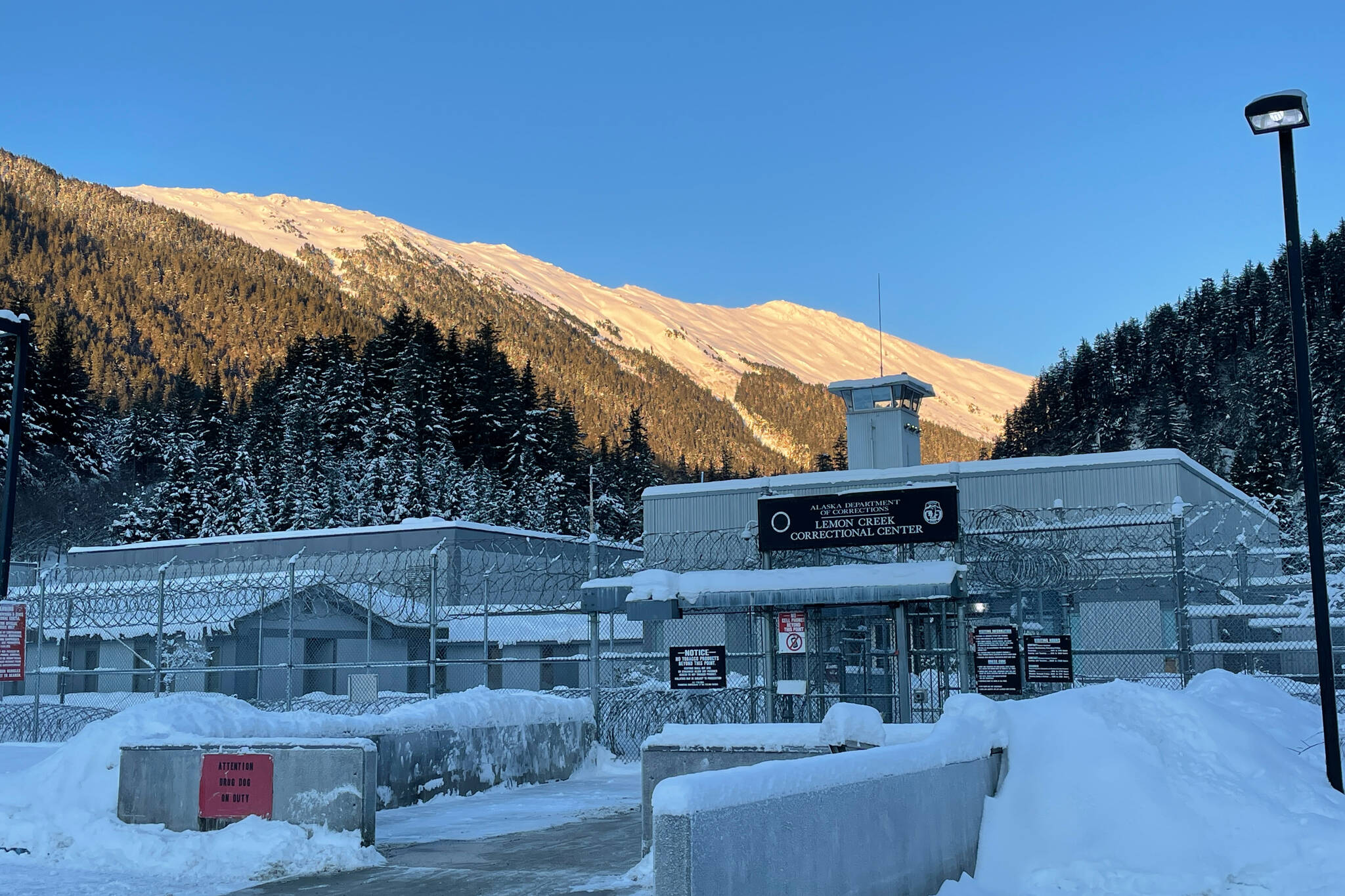A report from the state ombudsman’s office released Tuesday details a number of issues that resulted in complaints being filed against Lemon Creek Correctional Center in the early months of the COVID-19 pandemic.
Superintendent Bob Cordle acknowledged the early issues, but said that the facility became more flexible as best practices evolved and more became known about COVID-19.
Ombudsman Kate Burkhart’s report addressed four complaints raised against the facility — a lack of a sink in a residential tent, a shortage of medical care and screening, adding new inmates to an existing quarantine group and lack of access to showers while medically isolated.
[Heavy snow means white Christmas in Juneau]
The core of the medical treatment shortage issue comes down to one of personnel and division of responsibilities, Cordle said. With only five nurses on staff, it takes only two down to reduce capacity by 40%, with the ombudsman finding the coverage of temperature checks insufficient. While the ombudsman recommended training correctional officers to fulfill duties like checking temperatures was followed as a stopgap measure, Cordle said, it doesn’t correct the shortage or help them with their own duties.
“They’re correctional officers. They are still very busy and we are not always staffed fully with correctional officers,” Cordle said in a phone interview. “When something like that happens, being able to train our staff solves our immediate problem, but it doesn’t solve the ultimate one.”
The solution to the shortage in medical personnel was to bring in personnel from elsewhere in the Alaska Department of Corrections, Cordle said. Since the early pandemic, personnel and doctrine has built in more flexibility to handle the constant but known threat of COVID-19 outbreaks in new intakes, Cordle said, reducing risk of a repeat shortage of medical personnel, but there are other perennial problems.
“I don’t think we’ve had less issues with COVID coming into the facility through intakes. The biggest issue we’ve had is the lack of quarantine housing,” Cordle said in a phone interview. “There’s only so many single cells we can put people in,”
The ombudsman did not find the facility at fault for the extended quarantine period caused by introducing new intake to a quarantine group that had nearly finished its quarantine period, saying that they’d followed DOC and Center for Disease Control and Prevention guidelines.
“People were in quarantine far longer than they normally would be, but there’s absolutely nothing we could do about that,” Cordle said. “I can certainly understand their disappointment. I’d hate to be in their shoes. But there’s just no way around that.”
Another issue, the lack of running water in a tent used since 1998 to house about 18 inmates to prevent overcrowding, was fixed according to the recommendations of the ombudsman by the installation of a handwashing sink at the cost to the facility of approximately $400, Cordle said. While plans to replace the tent with a more permanent structure have been weighed, Cordle said, the semi-permanent tent, which he said is climate-controlled as appropriate.
“The expense of (replacing) that is very significant,” Cordle said. “A more permanent structure was something that was considered many years ago before I was superintendent, but it was going to be very expensive to tie into the existing foundation and plumbing.”
The final issue, in which an inmate filed a complaint against the facility for limiting their access to showers while in medical isolation, was found to be baseless by the ombudsman, according to the report, with the facility allowing reasonable access. Medical isolation can be ordered for a wide range of reasons, Cordle said.
“Medical isolation can come down it being the night before surgery. It could be broken bones,” Cordle said. “There’s a whole variety of reasons to be putting someone in medical isolation.”
Assistant Superintendent Daryl Webster said the issue is one of scheduling; an inmate in medical isolation can’t share showers, and extra cleaning is required around their use.
“The issue with showering is we have to find common showers for people we have to treat uncommonly.” Webster said. “That goes further than just finding them a time on the schedule.”
• Contact reporter Michael S. Lockett at (757) 621-1197 or mlockett@juneauempire.com.

